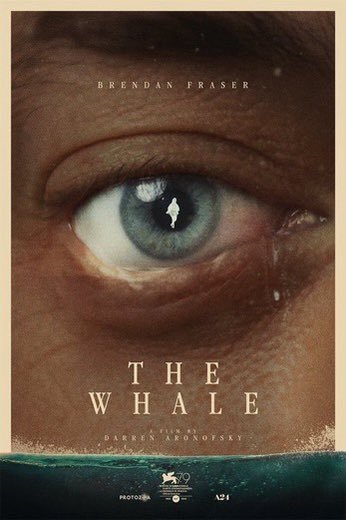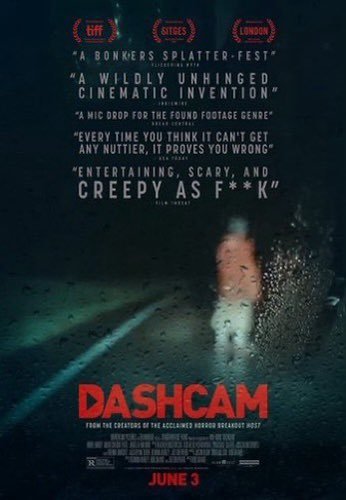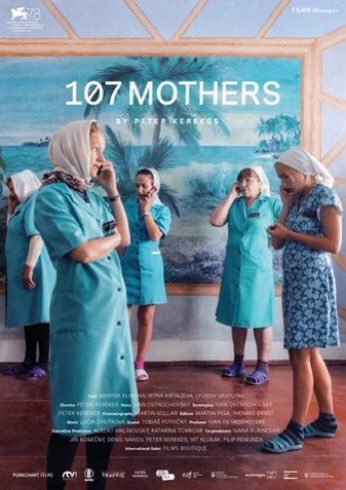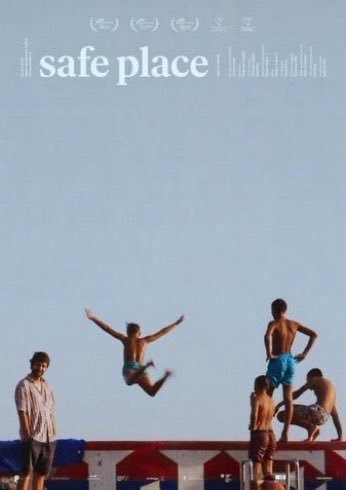İzledikten sonra hafızalardan uzun süre silinmeyecek müthiş filmler 🍿 https://t.co/k8mvjqGi72 Kaynak
İzledikten sonra hafızalardan uzun süre silinmeyecek müthiş filmler 🍿 https://t.co/k8mvjqGi72
Kaynak
The photo is a movie poster for the film "The Whale," starring Brendan Fraser. The poster features a close-up of a person's eye, with the words "THE WHALE" prominently displayed. The eye's reflection shows a small figure, which is a visual metaphor. The joke, if there is one, is implied rather than explicitly stated. The image is a visually striking and slightly unsettling one. The very large eye, reflecting a small figure, creates a sense of isolation and perhaps even a metaphor for the character's emotional or physical state. There's no simple pun or obvious humor in the poster. The artistic approach uses visual metaphor to create an evocative image associated with the film's subject matter, likely a character's inner struggles. No direct Turkish translation is possible without a definitive joke. The image creates an atmosphere and suggests themes of isolation and emotional burdens, not a comedic punchline.
The photo is a movie poster for a film titled "Dashcam". It features a dark, rainy, somewhat ominous scene with a person's leg/foot visible through what appears to be a wet windshield or a similar surface. The title "Dashcam" is large and prominent, in red, and there are various tagline lines praising the film's entertainment value and intensity, including some strong language. The joke, in the taglines, is a hyperbolic and provocative way of describing the movie as being exceptionally scary and intense. The phrase "creepy as f**k" uses strong language to highlight the movie's horror elements. In Turkish, the joke could be interpreted in a similar manner: **Possible interpretations (in Turkish):** * **"Son derece korkutucu ve ürkütücü"** (Extremely scary and creepy): This is a straightforward translation of the core idea behind the joke. * **"Kabus gibi korkunç"** (Nightmare-inducingly scary): This emphasizes the extreme nature of the fear and terror, which is what the phrase "creepy as f**k" is intended to evoke. * **"Gerçekten tüyler ürpertici"** (Truly chilling): This emphasizes the emotional impact and effect the movie is meant to have on the viewer. The overall meaning, in Turkish or English, is to advertise a film that is intended to be very intense and scary. The use of strong language is part of the marketing strategy to attract a certain audience.
The image is a poster for a movie titled "107 Mothers" by Peter Kerekes. The poster features a group of women, dressed in teal/turquoise-colored scrubs or coveralls, standing in a room with a painted backdrop of a tropical scene. They appear to be on the phone. There is a significant amount of text below the main title, which are credits and promotional information. There is no joke present in the image itself. Movie posters don't typically contain jokes, they are designed to attract attention and interest in the film. The poster simply displays the movie title, director, and related information.
The image is a poster for a movie titled "Safe Place". It shows a light-blue sky background with a group of young people, some jumping or about to jump into water. There's a clear sense of youthful freedom and joy in the image. The joke, if there is one, is implied, not explicitly stated. The image doesn't have a punchline in the way a typical joke does. The juxtaposition of the title "Safe Place" with the image of young people jumping into the unknown (presumably water) creates a potential contrast or irony. In other words, it suggests that despite the title, the situation, although depicted as playful, may not be completely safe. The viewer may interpret this in different ways depending on how they associate the word "safe place" in different contexts. There is no Turkish joke to explain, as the image relies on an implied contrast between the title and the visual representation.




Henüz bişi yazılmamış